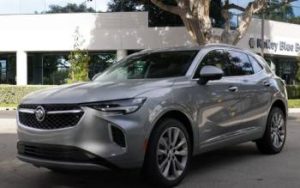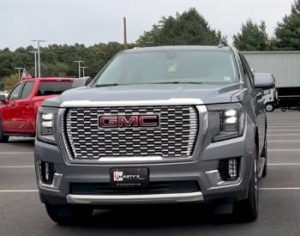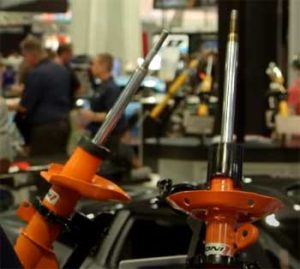When it comes to choosing an SUV that’s perfect for you, the choices are endless. But today, let’s zoom in on two heavyweights in the SUV market: the Grand Cherokee and the Atlas.
Both have loyal followings, both bring something unique to the table, and both could be the ideal choice for your driveway.
Let’s dig deep and find out which one is the best for you.
The Brief Comparison Table
| Feature/Aspect | Grand Cherokee | Volkswagen Atlas |
| Base Engine | V6 | Four-cylinder |
| Optional Engine(s) | V8 variants | V6 |
| Drivetrain | RWD (standard), 4WD | FWD (standard), AWD |
| Seating Rows | 2 | 3 |
| Infotainment System | Uconnect | Volkswagen Infotainment |
| Towing Capacity (max) | Higher (with V8) | Moderate |
| Off-Road Capability | Excellent | Moderate |
| Safety Features | Comprehensive | Comprehensive |
| Price Range | Broad (depending on trims) | Consistent |
Grand Cherokee: The All-American Classic
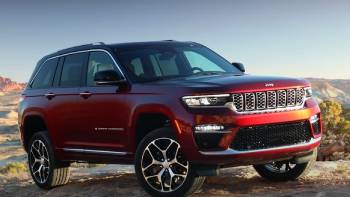
Pros:
- Powerhouse Performance:
Known for its powerful engines, the Grand Cherokee doesn’t hesitate to show off its muscle, especially if you opt for the V8.
- Off-Road Capabilities:
With the Jeep’s renowned 4×4 system, it’s always ready to leave the asphalt behind.
- Premium Interiors:
The higher trims feel luxurious with their leather seats, top-tier tech, and attention to detail.
- Safety:
Updated safety tech keeps you feeling secure on the road.
Cons:
- Fuel Efficiency:
All that power comes at a cost. The Grand Cherokee isn’t the most fuel-efficient SUV out there.
- Price:
Opting for higher trims or additional features can make it quite pricey.
Also Read: Is Having AAA Tire And Wheel Insurance Wise?
Volkswagen Atlas: The German Engineering Marvel
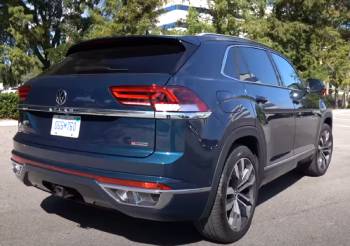
Pros:
- Spaciousness:
The Atlas offers three rows of seating, with ample legroom even in the back row.
- Sleek Design:
European design gives it an edge, making it look both robust and sophisticated.
- Fuel Efficiency:
Generally better fuel efficiency than many competitors, including the Grand Cherokee.
- Reliability:
With German engineering, the Atlas has become known for its durability and reliability.
Cons:
- Less Power:
While efficient, the Atlas doesn’t quite pack the same punch as the Grand Cherokee in terms of raw power.
- Less Off-Road Ready:
While capable, it’s not quite geared for extreme off-roading like the Jeep.
The Real User Approach
Imagine packing for a weekend getaway. In the Grand Cherokee, you’d have the confidence of knowing you could tackle any terrain on your adventure, but might need to pack a little lighter.
In the Atlas, you’d have room for more luggage (or more friends!), but might want to stick to more established paths.
Or picture this: you’re on a long highway drive. In the Cherokee, you’d revel in the power beneath your foot, while in the Atlas, you’d appreciate the fewer gas station stops.
Also Read: Differences Between Mastercraft Courser Trail HD And BFG KO2 Tires.
Key Differences Between Grand Cherokee and Volkswagen Atlas
It’s a debate that’s been reverberating through garages and online forums alike: Grand Cherokee or Volkswagen Atlas?
These two giants, an emblem of American prowess and German engineering respectively, have a lot that sets them apart. Let’s dive deep into the distinct aspects of these vehicles.
Performance and Powertrain
Grand Cherokee:
The Grand Cherokee is synonymous with power. The base model typically starts with a V6 engine, but there are V8 options available for those craving more power.
Historically, the Grand Cherokee has offered several engines, including the monstrous supercharged V8 in the Trackhawk variant.
With rear-wheel drive as standard and available four-wheel drive, the Grand Cherokee is equipped for both on-road and off-road conditions. Its towing capacity, especially with the V8, is noteworthy, making it a favorite for those who frequently tow trailers or boats.
Volkswagen Atlas:
The Atlas tends to emphasize efficiency over raw power. With its standard four-cylinder engine, it offers reasonable fuel economy, but there’s also a V6 for those wanting a bit more oomph. Front-wheel drive is standard, with all-wheel drive as an option.
The Atlas is primarily designed for on-road use, which means it’s tuned more for comfort and stability rather than rugged off-roading. Its towing capacity, while respectable, doesn’t quite match up to the higher specs of the Grand Cherokee.
Interior and Comfort
Grand Cherokee:
Step inside a Grand Cherokee, and you’ll notice the emphasis on luxury, especially in the higher trims. With available leather seating, heated and ventilated front seats, and a state-of-the-art infotainment system, the Grand Cherokee seeks to pamper its occupants. Its two-row seating ensures ample space for both passengers and cargo.
Volkswagen Atlas:
The Atlas shines when it comes to interior space. With three rows of seating, it can comfortably accommodate seven passengers. The third row, unlike many competitors, can actually seat adults with a decent amount of legroom.
The design is functional and ergonomic, with controls within easy reach. Higher trims offer upscale materials and additional luxury features, but the primary selling point here is the spaciousness.
Safety and Technology
Grand Cherokee:
Jeep has continually updated the Grand Cherokee with modern safety tech. Available features include adaptive cruise control, blind-spot monitoring, forward collision warning, and lane departure warning. The infotainment system, Uconnect, is user-friendly and responsive, and higher trims even offer a larger touchscreen.
Volkswagen Atlas:
Volkswagen doesn’t skimp on safety. The Atlas comes with a suite of safety features, including automatic emergency braking, blind-spot monitoring, and rear traffic alert. The infotainment system, while not as snazzy as some competitors, is straightforward and gets the job done.
Price and Value
Grand Cherokee:
The Grand Cherokee offers a broad spectrum of trims, from the basic Laredo to the opulent Summit and the performance-oriented SRT and Trackhawk. As you climb the trim ladder, the price can get steep, but you’re also getting a lot of vehicle, both in terms of performance and luxury.
Volkswagen Atlas:
With a more narrow range of trims, the Atlas has a more consistent pricing structure. Even the base model is well-equipped, making it a solid value proposition. As you go higher in the trims, you get more luxury and tech without a dramatic price hike.
Frequently Asked Questions (FAQs)
It depends on your needs. If power and off-roading are your priorities, the Grand Cherokee might be your pick. If space and efficiency are at the top of your list, consider the Atlas.
Yes, in terms of seating capacity and overall size. The Atlas offers three-row seating compared to the two-row in the Grand Cherokee.
Yes, the Volkswagen Atlas has gained a reputation for being a reliable SUV, backed by German engineering.
The Chevrolet Tahoe is larger in terms of overall dimensions than the Atlas, but the Atlas offers competitive interior space.
Not strictly. While the Atlas has luxurious trims and features, it’s not categorized as a luxury vehicle like brands such as Mercedes or BMW.
Both are strong contenders. The Tahoe offers more power and size, while the Atlas brings in European design and better fuel efficiency. Your needs and preferences will dictate the winner.
Conclusion
In conclusion, the choice between the Grand Cherokee and the Volkswagen Atlas boils down to individual needs. If you’re looking for power, off-road capabilities, and luxury features, the Grand Cherokee might be your best bet.
On the other hand, if interior space, passenger comfort, and value for money are your top priorities, the Atlas is a formidable contender. Either way, you’re getting a remarkable SUV worthy of consideration.
Whether you’re team Grand Cherokee or team Atlas, it’s evident that both vehicles offer compelling reasons to take a test drive. So buckle up, and may the best SUV win for your heart (and driveway)!

